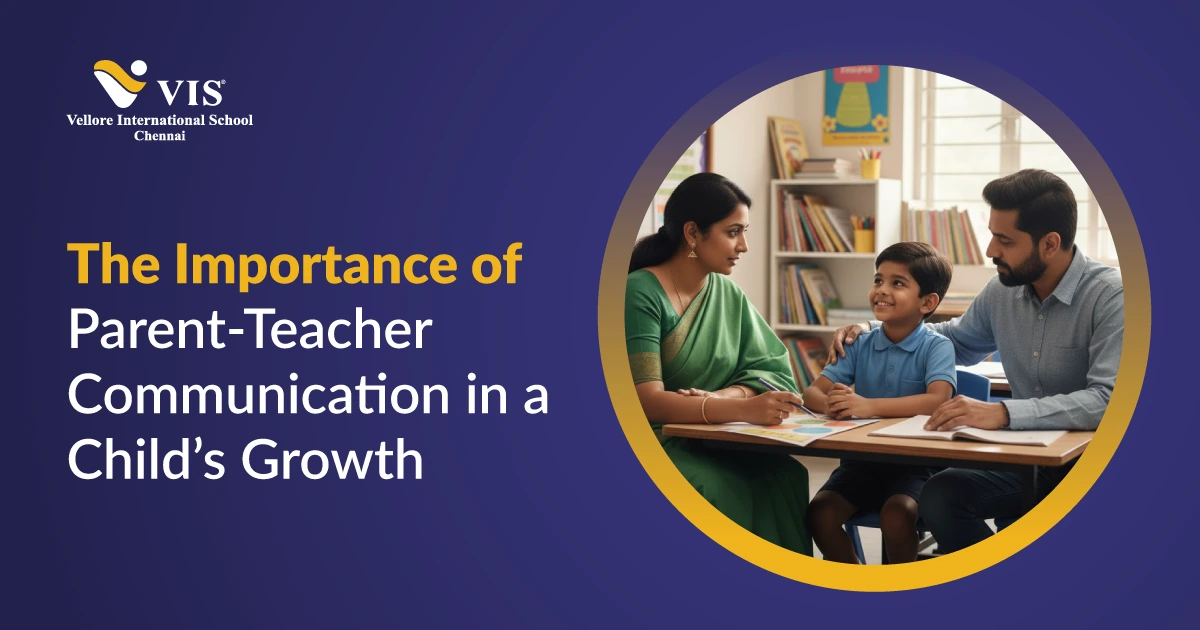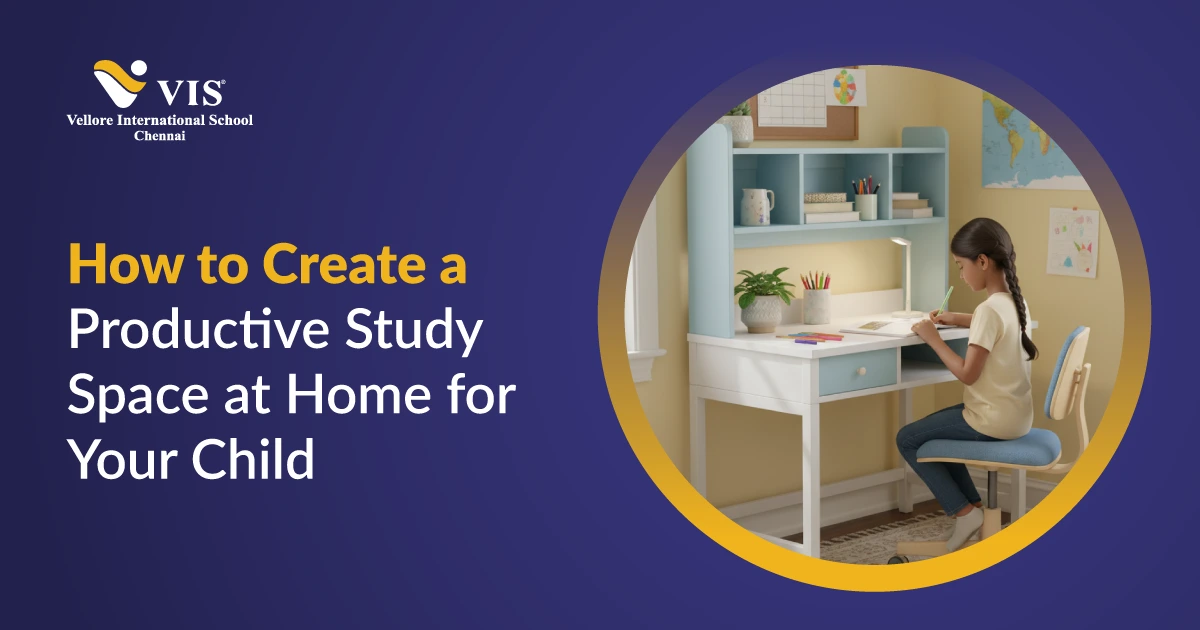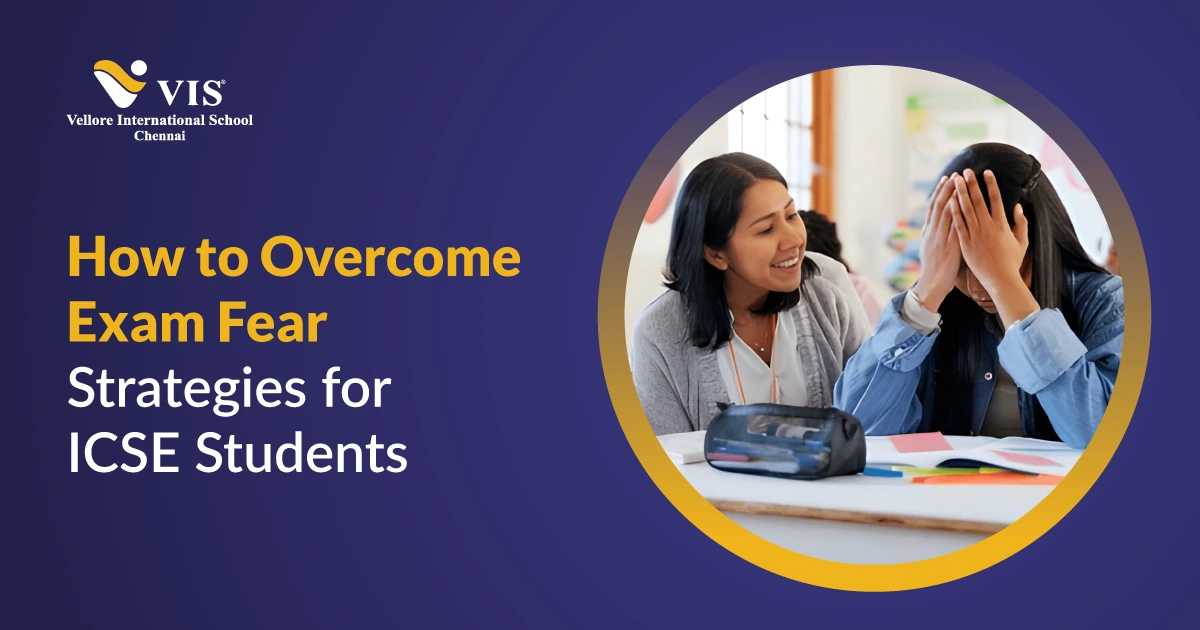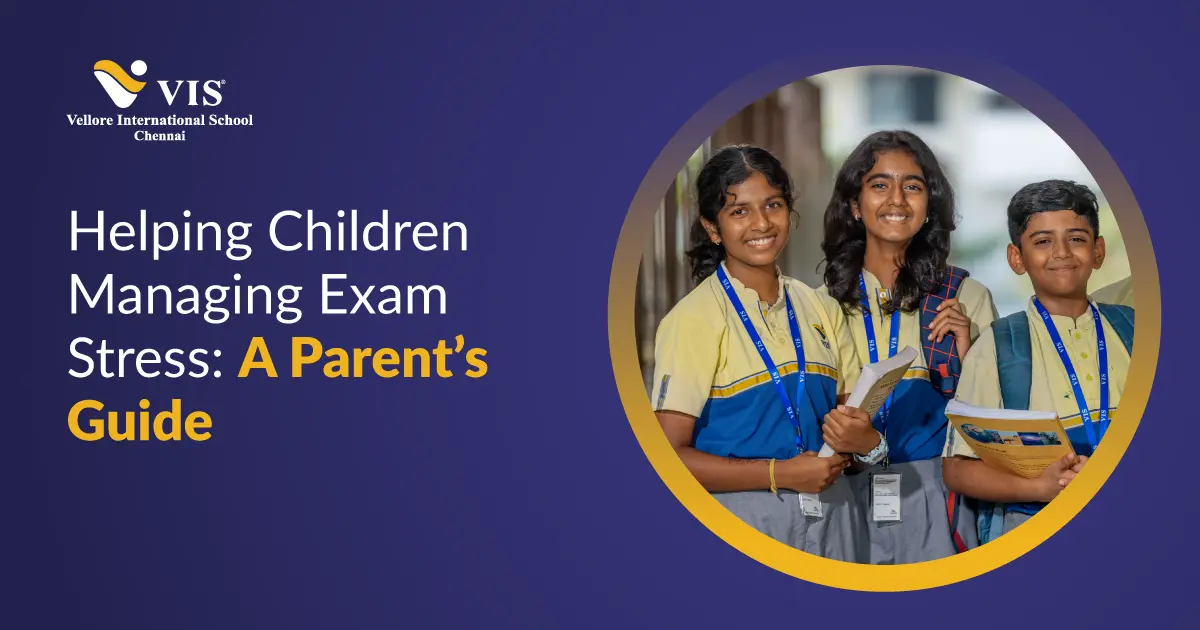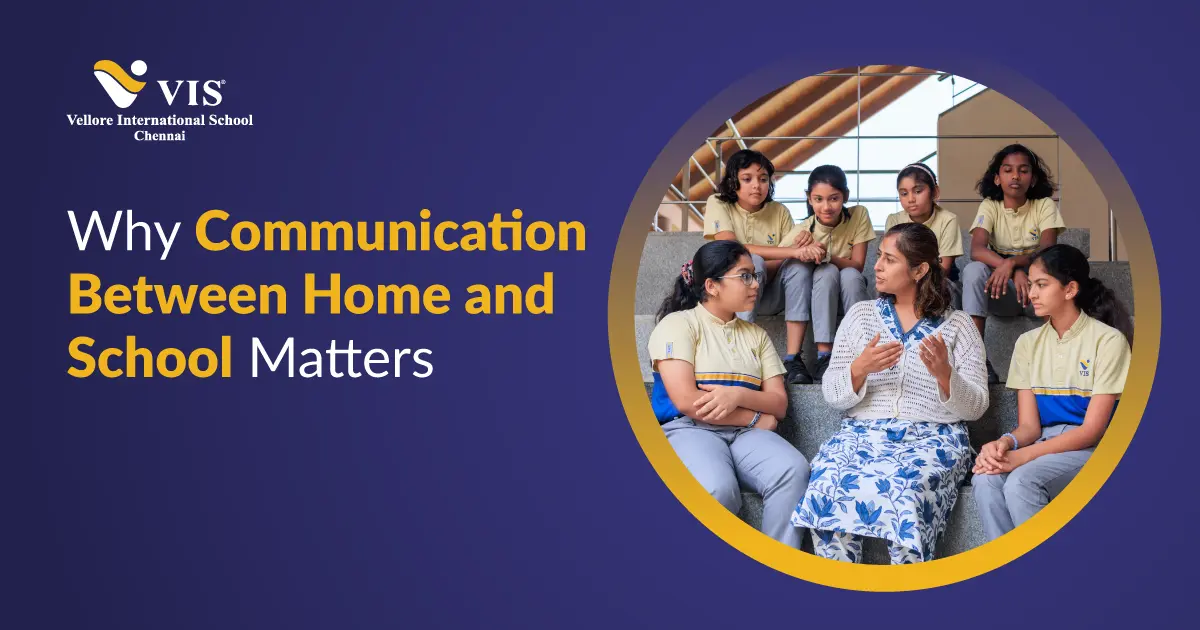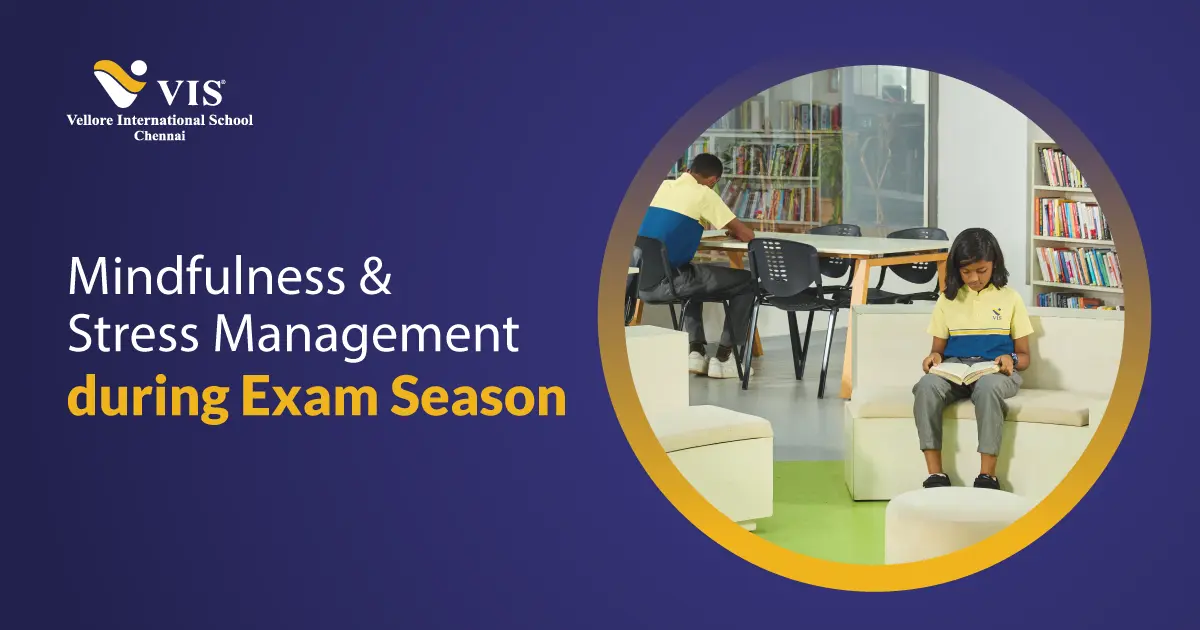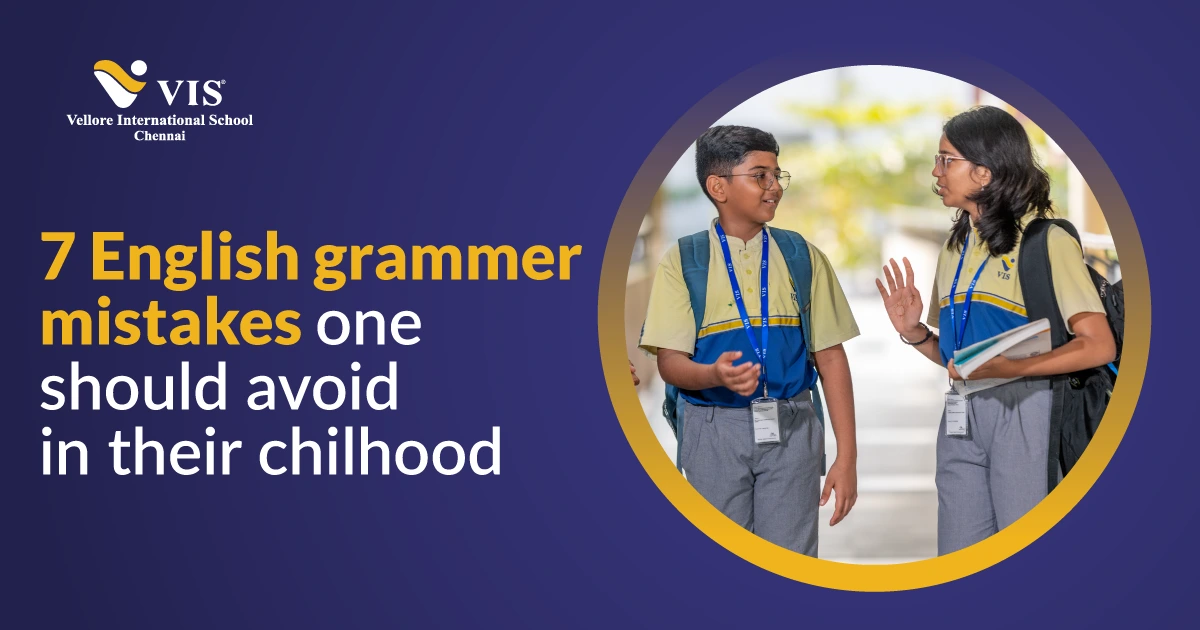Language is the foundation of communication, and English plays an essential role in shaping a child’s academic and professional journey. However, many children unknowingly develop habits that lead to English grammar mistakes, which continue into adulthood. These mistakes may seem small at first, but they create long-term issues in fluency, comprehension, and confidence.
Correcting grammar errors early is like fixing cracks in a building before they expand into structural problems. This blog covers the 7 most common English grammar mistakes children make, why they occur, how to avoid them, and the lifelong benefits of building a strong language foundation.
7 English Grammar Mistakes One Should Avoid
1. Confusing “Its” and “It’s”
One of the earliest and most widespread English grammar mistakes among children is confusing “its” with “it’s”.
- Its (without an apostrophe) shows possession: The dog wagged its tail.
- It’s (with an apostrophe) means it is or it has: It’s a beautiful day.
Children often mix these up because apostrophes are usually taught as a symbol of possession. However, in this case, the opposite is true: “its” is already a possessive pronoun. Teachers must highlight this exception early to avoid confusion.
Tip for children: If you can replace the word with “it is”, then use “it’s”. If not, stick to “its”.
2. Mixing Up “Your” and “You’re”
Another common English grammar mistake is using “your” instead of “you’re” or vice versa.
- Your shows ownership: Your homework is on the desk.
- You’re is a contraction of “you are”: You’re doing a great job.
Because both sound the same, children rely on pronunciation rather than meaning. This mistake, if not corrected early, can show up in formal writing, even in adulthood.
Activity for correction: Teachers can encourage children to create flashcards where “you’re” is always expanded to “you are” to reinforce understanding.
3. Subject – Verb Agreement Errors
Perhaps the most noticeable English grammar mistakes come from mismatched subjects and verbs. Children often say:
- She go to school every day. (Incorrect)
- She goes to school every day. (Correct)
The issue arises because kids usually simplify speech patterns and drop the “s” unconsciously. This becomes problematic in essays, exams, and public speaking.
How to fix it: Regular reading and repetition exercises help children internalise subject – verb rules. For instance, narrating daily routines aloud in correct grammar form builds a habit.
4. Misusing “There”, “Their”, and “They’re”
Homophones confuse children since they sound alike but carry different meanings. This is one of the most persistent English grammar mistakes.
- ‘There’ refers to a place or position: The book is over there.
- ‘Their’ shows possession: Their house is big.
- They’re is short for “they are”: They’re going to the park.
Confusing these words creates misunderstandings in written communication.
Memory trick: Teach kids with a sentence combining all three: They’re bringing their books over there.
5. Overusing Commas or Forgetting Them
Punctuation is where many English grammar mistakes hide. Children either sprinkle commas randomly or skip them entirely, leading to confusing sentences.
- Wrong: After lunch we went to the park and then we played football and then we ate ice cream.
- Correct: After lunch, we went to the park, and then we played football, and later, we ate ice cream.
Teaching approach: Using storytelling with pauses can help children feel where commas are naturally needed. Reading aloud also makes punctuation intuitive.
6. Confusing Past and Present Tenses
Tense confusion is another major category of English grammar mistakes. Children may write:
- Yesterday, I go to the park. (Incorrect)
- Yesterday, I went to the park. (Correct)
Switching tenses mid-sentence is also common: She was walking and singing loudly.
How to avoid it: Parents and teachers should encourage storytelling exercises where the child narrates past events consistently in the past tense. Similarly, practice with time markers like ‘yesterday’, ‘today’, and ‘tomorrow’ can guide them.
7. Capitalisation Mistakes
Children often forget to capitalise proper nouns or the first letter of sentences. They might write: i love playing cricket with my friend Rahul.
Capitalisation errors are subtle but are considered careless in formal writing. Among the English grammar mistakes, this one is easiest to fix with consistency.
Correction tip: Encourage children to rewrite their names, cities, or favourite things daily—always starting with capital letters.
Why Correcting Grammar Early Matters
Avoiding English grammar mistakes during childhood builds confidence, sharpens communication, and lays the foundation for lifelong learning. Children who master grammar early tend to:
- Perform better in exams and essays
- Communicate confidently in group discussions
- Write impactful stories, emails, and letters
- Reduce embarrassment in professional communication later
A child’s brain absorbs languages quickly during the formative years. Early correction ensures they grow with strong habits instead of unlearning bad ones.
Role of Schools in Preventing Grammar Mistakes
Schools are the primary environment where children learn to express themselves. Teachers act as role models for communication. Effective schools integrate grammar not as a dull subject but as part of daily life through storytelling, debates, reading clubs, and writing workshops.
Modern educational institutions also understand that grammar should not be taught in isolation. Instead, it should connect with real world communication, emails, digital writing, presentations, and public speaking.
How Parents Can Help at Home
Correcting English grammar mistakes is not just the responsibility of schools. Parents play a vital role in reinforcing language skills at home. Simple practices can make a big difference:
- Reading Together: Read short stories, newspapers, or comics with your child and point out correct usage.
- Daily Journals: Encourage kids to write about their day in 3 – 4 sentences. Review grammar together.
- Fun Word Games: Crossword puzzles, Scrabble, or online grammar quizzes make learning fun.
- Positive Reinforcement: Appreciate effort, not just correctness, to keep motivation high.
- Speaking Practice: Ask children to explain things in complete sentences instead of one word answers.
Real Life Impact of Avoiding Grammar Mistakes
Strong grammar builds:
- Academic confidence: Children write better essays, answer precisely in exams, and score higher in language subjects.
- Social confidence: Correct grammar helps kids express themselves without hesitation.
- Future readiness: From competitive exams like IELTS, TOEFL, and SAT to corporate emails, grammar plays a lifelong role.
By eliminating common English grammar mistakes, children position themselves for success in every stage of life.
Vellore International School: Importance of the English Language
At Vellore International School (VIS), Chennai, language development is treated as a fundamental component of holistic education. Our school focuses on communication skills alongside academic excellence. By integrating interactive language activities, debates, literature appreciation, and guided writing sessions, VIS ensures that students avoid common English grammar mistakes from an early age.
We believe in nurturing confidence and clarity in every child’s speech and writing, preparing them not just for exams but for life. Parents seeking an institution that prioritises both knowledge and expression find Vellore International School a trusted choice for building strong communication foundations.
Final Thoughts
Grammar may seem like a set of rigid rules, but in reality, it is the bridge between thought and expression. When children avoid common English grammar mistakes, they become clearer thinkers, better writers, and confident speakers.
Parents, teachers, and schools, especially nurturing institutions like Vellore International School, hold the key to ensuring that children develop language mastery early. With the right support, children can grow into articulate individuals capable of making an impact in academics, careers, and life. Correct grammar is about empowerment. And the best time to build it is in childhood.
FAQs on English Grammar Mistakes in Childhood
1. What are the most common English grammar mistakes children make in school?
The most common English grammar mistakes among children include confusion between its/it’s, your/you’re, subject-verb agreement, misuse of tenses, and punctuation errors.
2. How can parents help children avoid English grammar mistakes at home?
Parents can read with their children, encourage daily journaling, correct errors gently, and play fun grammar games to reinforce correct language usage.
3. Why should English grammar mistakes be corrected in childhood?
Correcting English grammar mistakes in childhood builds lifelong confidence, improves academic scores, and helps children communicate effectively in their future careers.
4. How does Vellore International School help students overcome grammar challenges?
Vellore International School focuses on interactive learning methods like debates, storytelling, and writing workshops to ensure students overcome English grammar mistakes early.
5. Can avoiding English grammar mistakes improve my child’s future opportunities?
Yes. Strong grammar skills enhance academic performance, prepare students for competitive exams, and improve communication skills required in higher studies and jobs.




